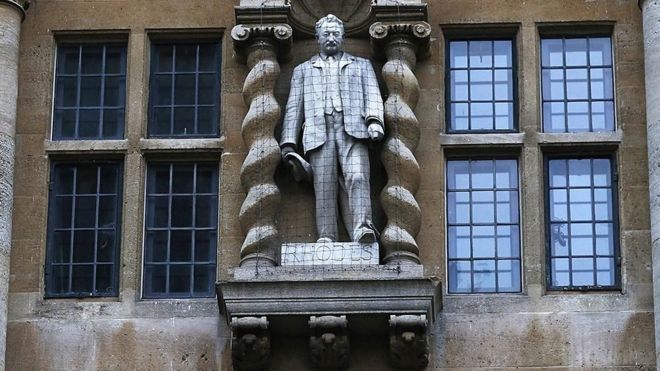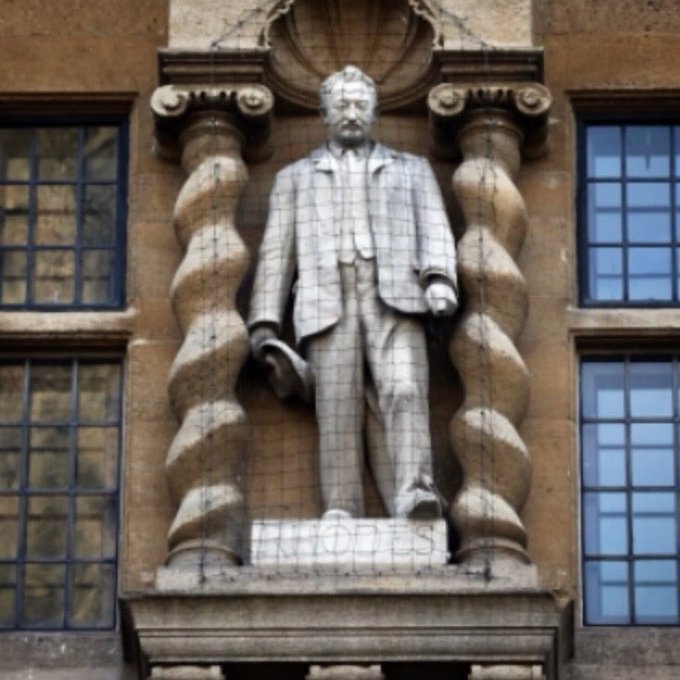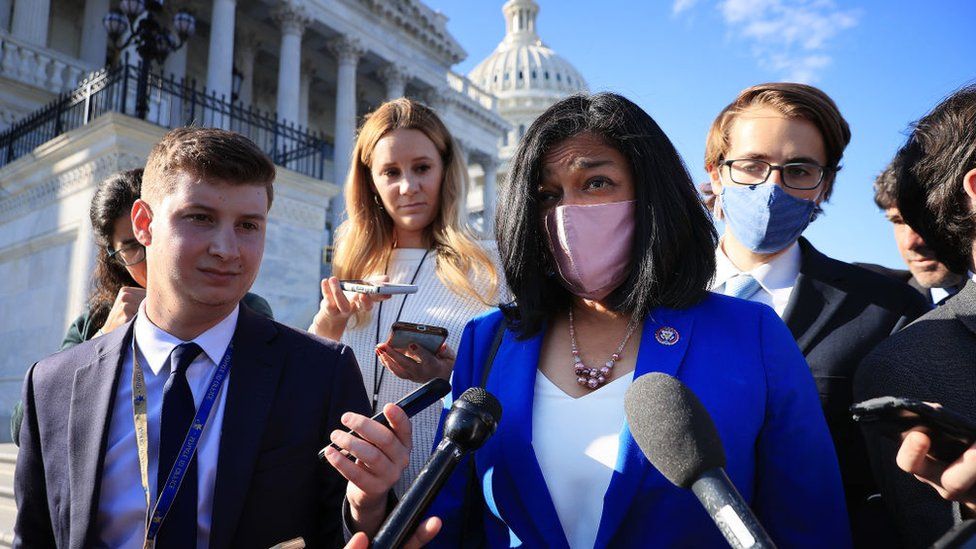Cecil Rhodes protesters to fight on while statue remains

Protesters have been calling for an Oxford college's statue of Cecil Rhodes to be removed
Campaigners have said protests will continue while the controversial statue of colonialist Cecil Rhodes remains at Oriel College in Oxford.
The announcement that governors voted for its removal was met with a cautious welcome from the Rhodes Must Fall campaign, which said it was "hopeful".
The college says there will need to be consultations over planning regulations before it can be taken down.
Critics accuse the campaign of trying to "rewrite history".
Campaigners say the statue is a symbol of imperialism and racism.
Responding to Wednesday's vote, Rhodes Must Fall said that until the statue "ceases to adorn the facade of Oriel College on Oxford's High Street" there would still be protests over "imperial and colonial iconography" in university buildings.
"We have been down this route before, where Oriel College has committed to taking a certain action, but has not followed through," a statement read, referring to a commitment to engage in a "six-month-long democratic listening exercise" in 2015.
"Therefore, while we remain hopeful, our optimism is cautious. While the governing body of Oriel College have 'expressed their wish' to take down the statue, we continue to demand their commitment."
Oriel College's governors said the decision had been reached "after a thoughtful period of debate and reflection" - and in "full awareness of the impact these decisions are likely to have in Britain and around the world".
The college is to launch an "independent commission of inquiry" into the legacy of Cecil Rhodes, which also includes scholarships at the university.

The commission, to be headed by Carole Souter, master of St Cross College and former National Lottery Heritage Fund chief, will also consider wider issues, such as support for black and ethnic minority students and a commitment to "diversity".
It will consult with groups including students, local people, councillors and the Rhodes Must Fall campaigners.
Susan Brown, leader of Oxford City Council, backed the decision to take down the statue - and said the college's inquiry would be a chance to decide where the statue will "best be curated in future".
The fate of the statue has divided opinion.
Labour MP Bell Ribeiro-Addy called it the "right decision" on Twitter, adding that it was "time to take figures like Rhodes down off their pedestals".
Alan Rusbridger, principal of Lady Margaret Hall in Oxford, also welcomed the decision.
'Generosity'
However, former Conservative MEP Daniel Hannan tweeted that "Rhodes's generosity allowed thousands of young people to enjoy an education they could not otherwise have had".

Earlier on Wednesday, the universities minister had spoken against calls to remove the statue.
Michelle Donelan said it would be "short sighted" to try to "rewrite our history" - and rejected attempts to "censor or edit" the past.
"Racism is abhorrent and shouldn't be tolerated anywhere in our society, and that includes universities," she told a Higher Education Policy Institute event.
However, Ms Donelan said she was opposed to the renaming of buildings named after the 19th Century statesman, William Gladstone, or the removal of the Rhodes statue.
'Hiding' the past
Protesters on the streets of Oxford have called for the statue to be taken down, saying that it represented imperialist values that were no longer acceptable.
But last week the vice-chancellor of Oxford University, Louise Richardson, gave little support for removing the statue - and warned against "hiding" the past.
"My own view on this is that hiding our history is not the route to enlightenment," Prof Richardson told BBC News.
"We need to understand this history and understand the context in which it was made and why it was that people believed then as they did," she said.
"This university has been around for 900 years. For 800 of those years the people who ran the university didn't think women were worthy of an education. Should we denounce those people?
"Personally, no - I think they were wrong, but they have to be judged by the context of their time," said Prof Richardson.













Comments